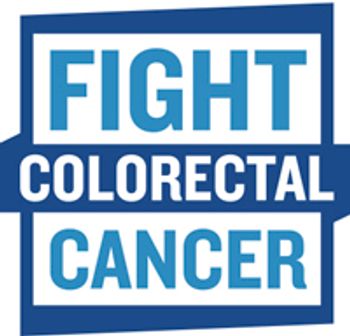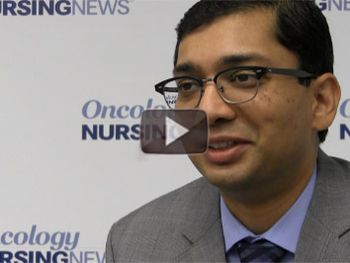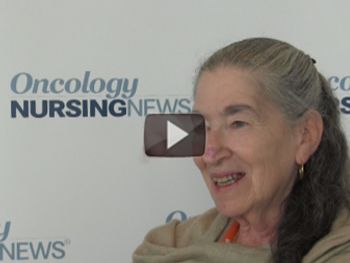
A recent meta-analysis found that the most effective treatments for cancer-related fatigue are exercise and psychological interventions.

A recent meta-analysis found that the most effective treatments for cancer-related fatigue are exercise and psychological interventions.

People with certain disabilities were found to be less likely to follow recommended guidelines for colorectal cancer screening.

On March 21, at 9 PM EST, the #CureConnect tweetchat will be focusing on screening and prevention. Sharyn Worrall, Patient Education Manager for FightCRC will be comoderating on this topic, which is especially important for colorectal cancer.

A poor diet earlier in life could be linked to a greatest risk of breast cancer before menopause.

A recent study found that telenutrition services may be beneficial for patients with high-risk cancer.

A recent trial found that patients who receive telephone-based smoking cessation counseling at the time of lung cancer screening are more likely to quit smoking.

A recent study suggested that intentional weight loss could decrease the risk of endometrial cancer.

Group exercise programs are beneficial to survivors of cancer, and can offer motivation from peers to continue living a healthy lifestyle.

Elizabeth Repasky, PhD, discusses the effect that lifestyle factors can have on immune reponses in patients with cancer.

Patients in a small study who were placed on a certain diet plan for three months saw a decrease in fatigue from breast cancer treatments.

A recent study sought to evaluate clinician expectations of benefits and harms of treatments, imaging, and screening.

A recent study examined factors associated with decreased levels of physical activity following cancer diagnosis and aimed to identify barriers to staying physically active.

According to new analysis, patients with metastatic colorectal cancer (mCRC) who engaged in daily exercise demonstrated improved outcomes.

A recent study found that weightlifting and resistance training may be a viable option to mitigate the risk and progression of lymphedema.

Dr. Puneeth Iyengar expresses the importance of nutrition and hydration for patients with stage III lung cancer.

Recent development of a tool to detect early signs of cachexia, characterized by muscle loss, anorexia and weakness, in patients with cancer may help with early diagnosis, leading to better prognosis and quality of life.

Stressing self care, a Mei Fu developed an online platform for prevention and treatment of lymphedema.

Nurses can model and encourage patients toward healthy behaviors making it E.A.S.I.E.R in just a few simple steps.


Alene Nitzky will moderate our next #CureConnect twitter chat about helping patients to get active and fit physical activity into their routine.

Arvind Shinde, MD, MBA, MPH, assistant clinical professor at Cedars-Sinai Medical Center, discusses the potential benefits of monitoring patients with fitness trackers.

Cancer survivors are not more likely than the general population to fully engage in healthy lifestyle behaviors. Interventions to increase physical activity and smoking cessation programs are needed.

Kathryn H. Schmitz, PhD, MPH, professor of Public Health Sciences and associate director of Population Sciences at the Penn State Cancer Institute, discusses what researchers already know regarding diet and exercise and breast cancer, and what questions are yet to be answered.

Ian R. Kleckner, PhD, Research Assistant Professor at University of Rochester Medical Center, discusses the benefits of exercise for patients with chemotherapy-induced peripheral neuropathy (CIPN).

Researchers from the University of Arizona in Tucson and the American Cancer Society conducted a systematic literature review to examine associations between adherence to established cancer prevention guidelines and overall cancer incidence and mortality.

Oncology nurses receive a steady stream of information on the benefits of exercise for health and wellness—not just a way to help prevent cancer and lower risk for the general population, but to improve quality of life and reduce the risk of recurrence for patients and survivors.

Carol Blecher, MS, RN, AOCN, Trinitas Comprehensive Cancer Center, discusses using exercise not only as rehabilitation for patients with cancer, but also “prehabilitation”.

Carmela Hoefling, RN, MSN, APN-C, AOCNP, Rutgers Cancer Institue of New Jersey, discusses what oncology nurses can do to identify and treat patients who may be malnourished.

Amita Patel, NPC, Regional Cancer Care Associates, Central Jersey Division, talks about benefits of a multidisciplinary care team and some issues that providers should be aware of when treating patients undergoing chemotherapy.

A study of more than 2400 women with early-stage breast cancer has found that those who fasted 13 hours or more at night reduced their risk of breast cancer recurrence, findings that suggest prolonging the nightly fasting interval may offer a relatively safe nonpharmacologic way for women with early breast cancer to lower their risk of disease recurrence.